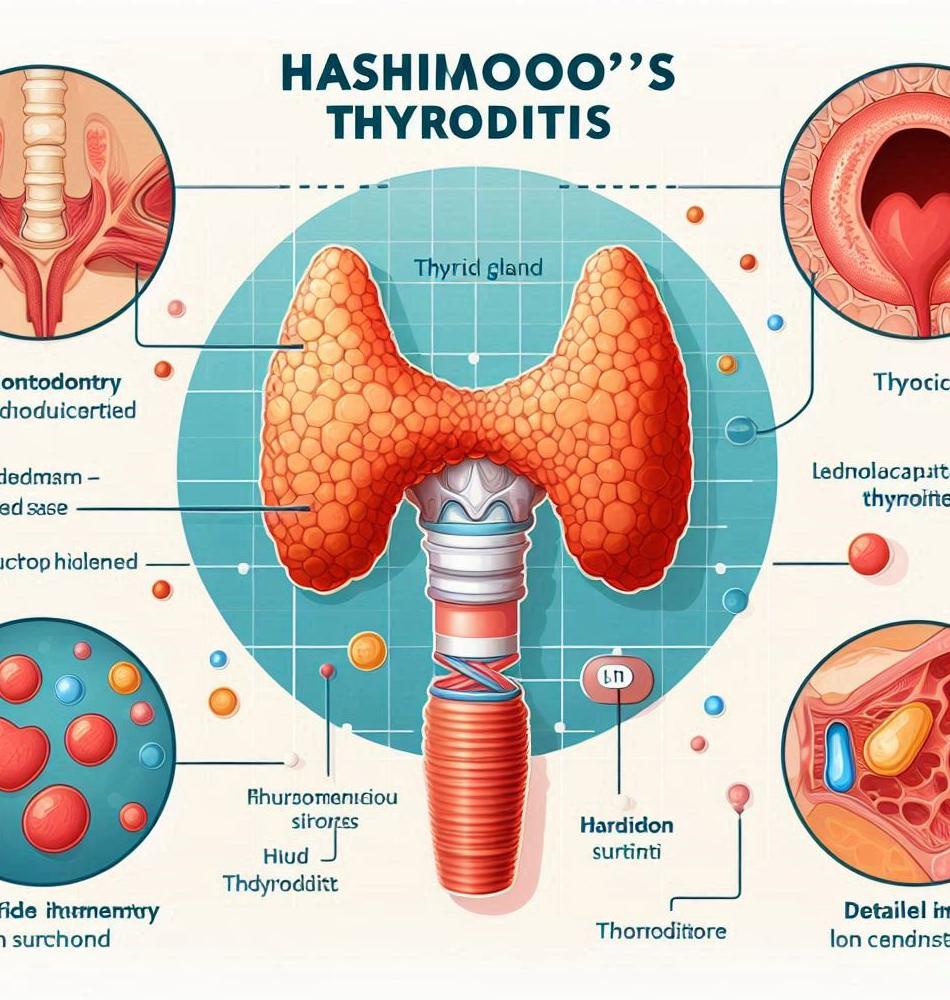Understanding Hypothyroidism Without Hashimoto's Disease: A Comprehensive Guide 🔍
When the term hypothyroidism is mentioned, many people immediately associate it with Hashimoto's disease. After all, it's the most common cause of an underactive thyroid. However, the thyroid gland can run into trouble for a variety of reasons unrelated to this autoimmune disorder. This article aims to shed light on hypothyroidism that occurs independently of Hashimoto's, revealing the complexities of thyroid health. Whether you are a patient, a caregiver, or just curious about the thyroid gland, keep reading to gain insightful knowledge on this important topic.
What is Hypothyroidism? ⚖️
To grasp the discussion about hypothyroidism without Hashimoto's disease, we first need to understand what hypothyroidism actually is. Hypothyroidism occurs when the thyroid gland does not produce enough thyroid hormones—thyroxine (T4) and triiodothyronine (T3)—which are crucial for regulating the body’s metabolism. Essentially, it leads to a slowdown in many bodily functions.
What Causes Hypothyroidism? 📉
Hypothyroidism can arise from various conditions, not solely Hashimoto's disease. Here are some notable causes:
1. Iodine Deficiency
Iodine is a vital mineral necessary for thyroid hormone production. In regions where iodine is scarce in the diet, hypothyroidism can develop.
2. Thyroid Surgery
Individuals who have undergone thyroid surgery may have reduced hormonal production, leading to hypothyroidism.
3. Radiation Therapy
Radiation treatment for cancers of the neck and head can affect the thyroid gland and reduce its ability to produce hormones.
4. Medications
Certain medications such as lithium, amiodarone, and interferon can have side effects that impact thyroid function.
5. Congenital Hypothyroidism
Some individuals are born with a malfunctioning thyroid gland or one that is absent altogether, resulting in hypothyroidism.
Symptoms of Hypothyroidism 🔍
Symptoms can vary from person to person, but some common indicators to watch for include:
- Fatigue and weakness
- Weight gain or difficulty losing weight
- Cold intolerance
- Dry skin and hair
- Constipation
- Depression
- Muscle weakness
- Slow heart rate
- Memory issues
Diagnosing Hypothyroidism Without Hashimoto's Disease 🩺
Diagnosing hypothyroidism typically involves blood tests measuring levels of TSH (Thyroid-Stimulating Hormone) and thyroid hormones (T4 and T3). In cases where Hashimoto's is ruled out, doctors look for other signs or markers of thyroid dysfunction:
1. TSH Levels
In hypothyroidism, TSH levels are usually elevated as the pituitary gland attempts to stimulate the thyroid gland to produce more hormones.
2. Free T4 Levels
Low levels of free T4 indicate inadequate hormone production by the thyroid.
3. Other Autoantibodies
In some cases, thyroid antibodies like anti-TPO or anti-thyroglobulin can be tested to ascertain if there’s an autoimmune involvement, which, if absent, can rule out Hashimoto's disease.
Treatment Options 📋
Treating hypothyroidism typically focuses on replacing the deficient hormones. The standard approach includes:
1. Levothyroxine
The most commonly prescribed medication is levothyroxine, a synthetic form of T4 that helps elevate hormone levels in the body.
2. Regular Monitoring
Patients will require regular follow-ups to monitor TSH and T4 levels, ensuring that the dosage is adjusted as necessary.
3. Lifestyle Adjustments
Incorporating a balanced diet rich in iodine, selenium, and zinc can support thyroid health.
Frequently Asked Questions (FAQs) ❓
- Can you develop hypothyroidism without having Hashimoto's disease? Yes, there are multiple causes aside from Hashimoto’s disease.
- What are the long-term implications of untreated hypothyroidism? Untreated hypothyroidism can lead to serious complications such as heart disease and myxedema coma.
- Is there a specific diet that can help manage hypothyroidism? While no specific diet can replace medication, consuming a balanced diet rich in nutrients can help support thyroid function.
- How often should I get my thyroid levels checked? Generally, patients are advised to check their levels every 6 to 12 months.
- Can hypothyroidism affect mental health? Yes, people with hypothyroidism often experience symptoms of depression and cognitive slowing.
Conclusion 🌟
In summary, hypothyroidism can exist without Hashimoto's disease, driven by various factors spanning dietary issues, medications, and more. It's imperative for those experiencing symptoms to seek medical evaluation, as early diagnosis and management can significantly improve quality of life. Understanding that hypothyroidism is not solely linked to autoimmune disorders broadens our perspective and encourages awareness about thyroid health. Stay informed, keep an eye on your health, and don’t hesitate to reach out for professional medical advice when needed.
.png)





